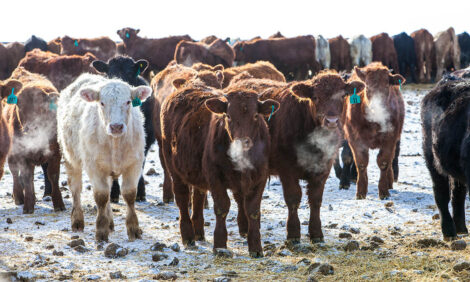



Should I be worried about avian influenza and the food supply?
Zoonotic infectious disease expert answers questions about avian influenza and the food supply
In April, the World Health Organization confirmed a case of Avian influenza A (H5N1), commonly known as bird flu, in a human in Texas. The individual contracted the disease while working on a commercial dairy cattle farm where the cows are believed to have been infected. The individual reported only minor symptoms and is the first confirmed human case in 2024. A second case of bird flu was reported in a human in May 2024. Cases of bird flu in cattle and other animals have now been found in Idaho, Kansas, Michigan, New Mexico, Ohio, Texas, and other states.
Reports have emerged that virus particles have been found in milk, but it is important to note that the virus particles are not infectious in pasteurized milk. Global organizations continue to monitor the situation as it evolves.
Amira Roess, professor of global health and epidemiology at George Mason University, offers insight and clarity on the uncertainties of this early disease outbreak. Roess is an epidemiologist who studies emerging zoonotic infectious diseases and their risk factors. Her research is interdisciplinary and includes complex longitudinal studies throughout the world. She served as the science director of the Pew policy commission on Industrial Food Animal Production and also served as a consultant on preparedness and response to H5N1 in 2007.
Should I be worried about bird flu right now?
Right now, most individuals do not need to be particularly worried about this strain of influenza because it is not affecting large numbers of people. There are many actions being taken to protect humans and to limit the impact of this virus on both our food supply and on people. For example, surveillance of animals has ramped up in response to the growing epidemic in animals. As infected animals are being identified, they are removed from the food supply before they can spread the virus.
Should we be worried that the current outbreak will spread?
Several agencies are closely monitoring the situation. So far this year, cows, birds, and one person in the US have been infected with the virus. Influenza viruses are notorious for their ability to mutate. We have limited knowledge of cow viruses adapting to humans so the mutations must be monitored closely for any changes that may occur that make the virus more transmissible or more dangerous to humans. If changes occur, early interventions can be put in place, including the development of tailored, vaccines.
We have decades of experience monitoring influenza and H5N1 in particular. What we have seen time and time again is that surveillance of human, animal, and environmental samples is extremely important. Surveillance allows us to identify new viral strains that may have public health importance before they cause large numbers of severe illness and death in both people and animals.
Is milk safe to drink even though the virus has been found in milk?
Here I will emphasize the pasteurized milk is safe for consumption. There have been reports of cats being fatally infected with this strain of influenza after consuming contaminated raw milk.
Testing by the FDA and USDA has not detected any live viruses in retail pasteurized dairy products like cheese, sour cream, or milk powders. Essentially, this means that while viral particles have been detected in pasteurized dairy products, including milk, these are not infectious. The bottom line is that pasteurization is effective in inactivating potentially live strains of bird flu.


